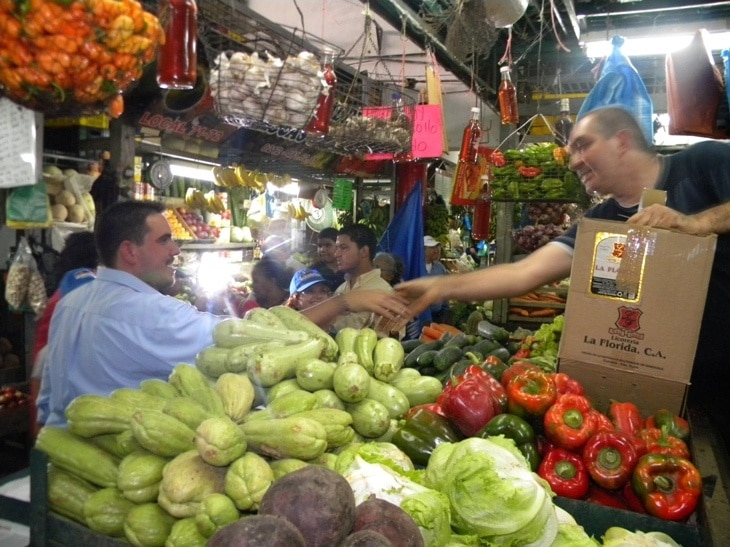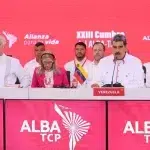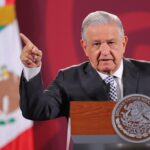
Venezuelan Minister for Labor, Eduardo Piñate, and the constituent Francisco Torrealba announced this Monday, April 27, an increase in the monthly minimum wage of Bs. 400 thousand, to which is added an increase in the food bonus to Bs. 400 thousand, raising the comprehensive monthly salary to Bs. 800 thousand.
Also reported was an increase in pensions to Bs. 400 thousand per month, plus an increase in the economic warfare stimulus bonus (Patria system), which rises to Bs. 300 thousand bolivars. The salary increase will take effect on May 1.
A partir del 1 de mayo entra en vigencia el aumento del salario mínimo, del cesta ticket socialista, de las pensiones y del sistema de bonos solidarios. El presidente @NicolasMaduro defendiendo a la clase obrera y al pueblo venezolano @drodriven2 @dcabellor #PatriaProtegida pic.twitter.com/ceXXmPMfnY
— eduardo piñate (@eduardopiate2) April 27, 2020
This is the second increase in the minimum wage this year, after it was raised to 250,000 bolivars and the food bonus to 200,000 bolivars last January. This new measure represents an increase of 60% of the minimum wage and 100% in the food bonus, for an overall increase of 78%.
The minimum wage is equivalent to US$ 2.16, according to the latest rate of the Central Bank of Venezuela (BCV), closing at Bs. 185,176.29 on the afternoon of April 27. The exchange rate has depreciated the Bolivar sharply in the last weeks going from Bs/$ 76,576 on March 27 to Bs/$ 185,176 today, April 27, meaning a devaluation of 138% in the last month.
Atención🔵|| El tipo de cambio publicado por el BCV es el promedio ponderado de las operaciones de las mesas de cambio de las instituciones bancarias. Al cierre de la jornada del viernes 27-03-2020, los resultados son:#MercadoCambiario #BCV🇻🇪 pic.twitter.com/JLLKwK0cGJ
— Banco Central de Venezuela (@BCV_ORG_VE) March 27, 2020
RELATED CONTENT: Using the Covid-19 Crisis: British and US Military Massing off Venezuelan Coast
The comprehensive monthly minimum income of Bs. 800,000, according to the BCV rate, would be US$ 4.32 in a country with services, education, health and housing highly subsidized or free, disregarding US sanctions.
The Venezuelan economy has suffered a de facto dollarization process more visible since the electrical blackout on March 2019 and many workers currently charge their work in dollars to protect themselves from the fluctuations in the exchange rate. The most benefited by this measure are public servants, historically representing around 50% of the work force but dramatically reduced in recent years due to wage deterioration as a consequence of the economic crisis created in part by US sanctions.
Workers in the private sector in the vast majority receive payments in Bolivars and bonuses in dollars, making them less impacted by the fluctuation in the exchange rate and inflation.
OT/JRE/EF
- orinocotribunehttps://orinocotribune.com/author/orinocotribune/
- orinocotribunehttps://orinocotribune.com/author/orinocotribune/
- orinocotribunehttps://orinocotribune.com/author/orinocotribune/
- orinocotribunehttps://orinocotribune.com/author/orinocotribune/
Share this:
- Click to share on Twitter (Opens in new window)
- Click to share on Facebook (Opens in new window)
- Click to share on LinkedIn (Opens in new window)
- Click to share on WhatsApp (Opens in new window)
- Click to share on Reddit (Opens in new window)
- Click to share on Telegram (Opens in new window)
- Click to email a link to a friend (Opens in new window)





